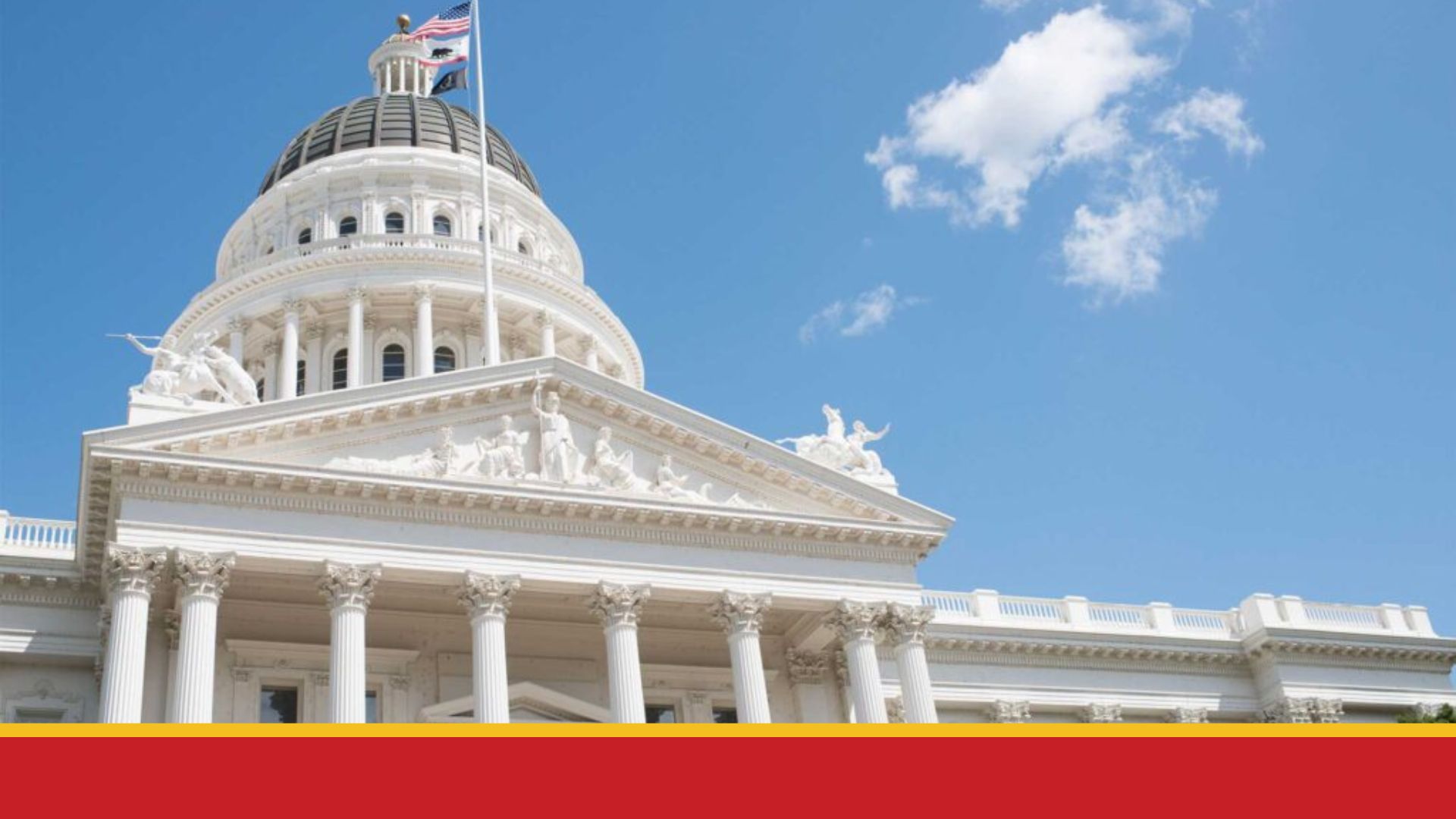 In Part Three of the New Law Guidance series from Best Best & Krieger LLP (BBK), we cover important new legislation for 2024 related to environmental law and the California Environmental Quality Act (CEQA). Below we provide takeaways and analyses of SB 676, SB 613, AB 356, SB 69, SB 91, SB 147 and SB 149. To see all our 2024 Guidance for New Laws, click here.
In Part Three of the New Law Guidance series from Best Best & Krieger LLP (BBK), we cover important new legislation for 2024 related to environmental law and the California Environmental Quality Act (CEQA). Below we provide takeaways and analyses of SB 676, SB 613, AB 356, SB 69, SB 91, SB 147 and SB 149. To see all our 2024 Guidance for New Laws, click here.
Environmental
SB 676 (Bill) prohibits a city or county from adopting or enforcing an ordinance or regulation that prohibits the installation of drought-tolerant landscaping using living plant material on residential property.
- The Bill defines “drought-tolerant landscaping” to exclude synthetic grass or artificial turf.
- The Bill repeals existing law: (1) prohibiting a city or county from adopting or enforcing an ordinance or regulation that bans the installation of synthetic grass or artificial turf on residential property; (2) allowing a city or county to impose reasonable restrictions on the type of drought tolerant landscaping, synthetic grass, or artificial turf that can be installed on residential property, as specified; and (3) allowing a city or county to impose reasonable restrictions on the installation or design of synthetic grass or artificial turf within the drip-line of a tree protected by local ordinance.
- The Bill allows a city or county to regulate or ban the installation of synthetic grass or artificial turf.
- This Bill is intended to allow cities and counties to address environmental and public health concerns over toxic chemicals used to produce synthetic grass or artificial turf and the lack of recyclability of the products after their useful life.
- This Bill applies to charter cities and declares drought-tolerant landscaping to be a matter of statewide concern and not a municipal affair.
SB 613 (Bill), effective January 1, updates information for special districts previously denied a low population waiver from organic waste collection requirements.
- The Bill states that a local jurisdiction will now qualify for a low population waiver until December 1, 2028, and will not have to provide organic waste collection services until that waiver expires if the local jurisdiction:
- Previously did not qualify for a waiver from providing organic waste collection services as of January 1, 2023.
- Disposed of less than 5,000 tons of solid waste in 2014.
- Has a current population less than 7,500 residents.
- Under the California’s Department of Resources Recycling and Recovery (CalRecycle) regulations, a special district is eligible for a low population waiver if it “disposed of less than 5,000 tons of solid waste in 2014 as reported in the Disposal Reporting System” and has “a total population of less than 7,500 people” (14 CCR § 18984.12(a)(1)(A)). Some districts were denied a waiver because they did not report their 2014 tonnage levels directly in CalRecycle’s Disposal Reporting System. However, while cities and counties directly reported tonnage in the Disposal Reporting System, at the time, special districts reported their tonnage to counties which then reported the county’s total aggregated tonnage in the Disposal Reporting System.
- This Bill addresses an application of the regulations that disadvantaged special districts, which at that time did not have to report their tonnage levels directly to the state.
- The Bill benefits special districts that were previously denied a low population waiver due to a technicality and allows a district that can demonstrate that it disposed of less than 5,000 tons of solid waste in 2014 to receive a low population waiver.
- The Bill will allow those special districts that would have otherwise qualified for the low population waiver to receive one until December 1, 2028.
CEQA
AB 356 (Bill) addresses the California Environmental Quality Act (CEQA) aesthetic impacts. CEQA currently does not require a lead agency to evaluate the aesthetic impacts of a project until January 1. Moreover, aesthetic effects are not considered significant effects on the environment if the project involves the refurbishment, conversion, repurposing or replacement of an existing building that meets the following requirements:
- The building is abandoned, dilapidated or has been vacant for more than one year.
- The building site is immediately adjacent to parcels that are developed with qualified urban uses or at least 75% of the perimeter of the site adjoins parcels that are developed with qualified urban uses and the remaining 25% of the site adjoins parcels that previously have been developed for qualified urban uses.
- The project includes housing.
- Any new structure does not substantially exceed the height of the existing structure.
- The project does not create a new source of substantial light or glare.
Exceptions to the above include a project with potentially significant aesthetic effects on an official state scenic highway, or potentially significant aesthetic effects on historical or cultural resources.
- The Bill extends the operation of this current provision to January 1, 2029.
- This Bill also requires the lead agency to file a notice with the Office of Planning and Research and the county clerk of the county in which the project is located.
SB 69 (Bill) addresses California Environmental Quality Act (CEQA) filing of notices of determination or exemption for local agencies. Existing law requires a local agency that approves or determines to carry out a project subject to CEQA to file a notice of determination with the county clerk of each county in which the project will be located, as provided. Existing law also authorizes a local agency that determines a project is not subject to CEQA to file a notice of exemption with the county clerk of each county in which the project will be located.
- The Bill requires a local agency to file a notice of determination with the State Clearinghouse in the Office of Planning and Research in addition to the county clerk of each county in which the project will be located.
- The Bill authorizes a local agency to file a notice of exemption with the State Clearinghouse in the Office of Planning and Research in addition to the county clerk of each county in which the project will be located.
- The Bill requires the notice, including any subsequent or amended notice, to be posted both in the office and on the internet website of the county clerk and by the Office of Planning and Research on the State Clearinghouse internet website within 24 hours of receipt.
- The Bill would specify that the posting of the notice by the Office of Planning and Research would not affect the applicable time periods to challenge an act or decision of a local agency.
SB 91 (Bill) addresses California Environmental Quality Act (CEQA) supportive and transitional housing: motel conversion for environmental leadership transit projects.
- Current law exempts from CEQA projects related to the conversion of a structure with a certificate of occupancy as a motel, hotel, residential hotel or hostel to supportive or transitional housing (as defined) that meet certain conditions until January 1, 2025. This Bill would extend indefinitely this exemption.
- Current law sets forth specified procedures until January 1, 2025, for the preparation of an environmental impact report for (and judicial review of the certification of the environmental impact report and approvals granted for) an environmental leadership transit project proposed by a public or private entity that is located within the County of Los Angeles and that is approved by the lead agency before January 1. This Bill extends the application of those procedures for environmental leadership transit projects to January 1, 2026 for projects approved on or before January 1, 2025.
SB 147 (Bill) addresses fully protected species under the California Endangered Species Act.
Existing law permits the “take” of fully-protected species in very limited circumstances, such as scientific research.
- The Bill is effective immediately and allows the Department of Fish and Wildlife to issue a permit under the California Endangered Species Act for the take of such species for other specified projects if certain conditions are satisfied until December 31, 2033.
- The following projects that are eligible for a take authorization permit under this Bill are:
- A maintenance, repair or improvement project to the State Water Project including existing infrastructure, undertaken by the Department of Water Resources.
- A maintenance, repair or improvement project to critical regional or local water agency infrastructure.
- A transportation project including any associated habitat connectivity and wildlife crossing project undertaken by a state, regional or local agency that does not increase highway or street capacity for automobile or truck travel.
- A wind project and any appurtenant infrastructure improvement.
- A solar photovoltaic project and any appurtenant infrastructure improvement.
- The Bill also removes the fully-protected status from three species: the American peregrine falcon, brown pelican and thick tail chub.
SB 149 (Bill) addresses California Environmental Quality Act (CEQA) administrative and judicial procedures such as record of proceedings and judicial streamlining.
- Existing law requires petitioners in CEQA lawsuits to either prepare an administrative record themselves at their own expense, or pay to have the agency they sued prepare the record. This Bill streamlines preparation of the administrative record in all CEQA actions by authorizing the public agency to supersede a petitioner’s election to prepare the record, within five days of receipt of petitioner’s election. If the public agency elects to prepare the record, it must do so within 60 days of its election and at its own expense (but it may pass that cost to the project applicant).
- The Bill also requires the court to schedule a case management conference within 30 days of the filing of a CEQA lawsuit to review the scope, timing and cost of the record of proceedings. In addition, an electronic copy of the certified administrative record must be lodged with the court.
- The Bill also clarifies that while all internal agency communications must be included in the administrative record, communications of a logistical nature (such as meeting invitations and scheduling communications) are not to be included. Moreover, any material that is subject to privileges contained in the Evidence Code or exceptions contained in the Public Records Act are not to be included in the record.
- This Bill also extends the sunset date of the Jobs and Economic Improvement through Environmental Leadership Act, which currently allows judicial streamlining of certain clean energy and small housing projects.
- Under this Bill, new types of infrastructure projects can be added to the Leadership Act to allow expedited review for a broader range of projects (such as water resiliency projects and clean energy and transportation projects).
- The Bill also establishes a 270-day limit in which CEQA lawsuits challenging projects under this Leadership Act are to conclude, to the extent feasible.
Disclaimer: BBK Legal Alerts are not intended as legal advice. Additional facts, facts specific to your situation or future developments may affect subjects contained herein. Seek the advice of an attorney before acting or relying upon any information herein.





